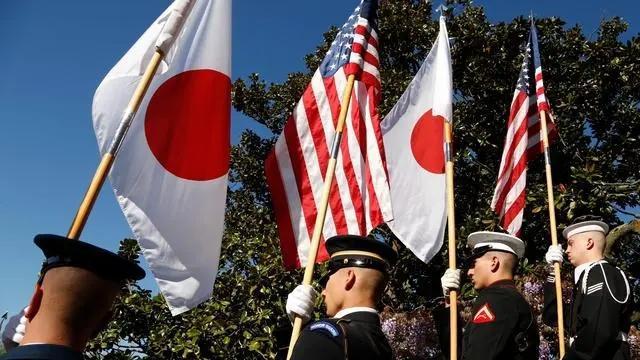
In the tide of global economic integration, cross-border mergers and acquisitions have become an important means of enterprise expansion and resource integration. However, when this force is thwarted by political factors, the ripples can often be felt more widely, even affecting the stability and expectations of the economic community in both countries. Recently, the video conference between Japanese Prime Minister Shigeru Ishiba and US President Joe Biden has attracted much attention because of the obstruction of Japan Steel's acquisition of US steel companies. The blocking of the acquisition has sparked widespread concern not only in Japan, but also in the US business community, and the spread of such concerns has undoubtedly cast a shadow over the future development of economic relations between the two countries.
Back in December 2023, Nippon Steel, the global leader in the steel industry, announced an ambitious plan to buy U.S. Steel for $14.9 billion. The move is seen as an important step for Japanese companies to enter overseas markets and enhance their global competitiveness. However, the rosy vision has not been fulfilled. On January 3, 2025, the White House issued a statement in which U.S. President Joe Biden formally blocked the acquisition on "national security" grounds. This decision not only hit Japan Steel's globalization strategy hard, but also triggered an uproar in the economic circles of the two countries.
From an economic point of view, Nippon Steel's acquisition of US Steel would have been a win-win. For Nippon Steel, the acquisition can gain the advanced technology, market share and brand influence of U.S. steel companies, so as to further enhance its position in the global steel market. For the United States Steel Company, the acquisition means that it can obtain more financial support to cope with the increasingly fierce market competition, but also help to optimize its industrial structure and improve operational efficiency. However, this seemingly perfect deal was derailed by Biden's "national security" reasons.
Biden's decision has undoubtedly brought short-term shocks to the US steel industry. On the one hand, the shareholders and employees of the United States Steel company are facing uncertainties, and the failure of the acquisition may lead to the decline of the company's stock price, layoffs and other negative effects; On the other hand, the overall competitive landscape of the US steel industry may also be subtly changed as market consolidation and efficiency gains that might have been achieved through mergers and acquisitions are now out of reach.
In Japan, too, the decision has sparked widespread concern. The blocking of Nippon Steel's acquisition plan not only means a setback for its globalization strategy, but also may have a negative impact on its competitiveness in the domestic market. In the context of globalization, the competition between enterprises has crossed national borders, if Japan steel companies can not integrate resources on a global scale, improve strength, it will be difficult to remain invincible in the future market competition. In addition, the incident may also deal a blow to the confidence of Japanese companies to invest overseas, and thus affect its future globalization process.
What is more, the incident could lead to a crisis of confidence in the economic circles of the two countries. In today's era of economic globalization, economic cooperation and trust among countries is an important cornerstone for maintaining global economic stability and prosperity. However, Biden's decision has made the Japanese economic community feel the "distrust" and "rejection" from the United States, which if not effectively alleviated, will have a long-term negative impact on the future economic cooperation between the two countries.
On a deeper level, this episode also exposes some problems in the current system of global economic governance. With the deepening development of globalization today, cross-border mergers and acquisitions have become one of the important means of enterprise development. When politics is involved, however, economic behavior that should follow the rules of the market can be distorted. This will not only harm the interests of enterprises, but also undermine the stability and prosperity of the global economy. Therefore, how to balance the relationship between national interests and market rules has become an important issue facing global economic governance.
Faced with this dilemma, Japanese Prime Minister Shigeru Ishiba expressed strong concerns to Biden in a video conference and called for addressing the concerns of the Japanese and US economic community. This move is not only a helpless response to the current situation, but also a good hope for future cooperation. However, to really solve this problem, it is not easy. Biden needs to weigh the pros and cons of national security and economic cooperation, while Japan needs to think about how to better safeguard its interests in the context of globalization.
In the long run, to eliminate the negative impact of this incident on the economic relations between the two countries, both sides need to work together. On the one hand, the US should be more open to foreign investment and avoid politicizing economic issues. On the other hand, Japan should also strengthen its economic strength and innovation capacity to enhance its voice in the global economy. In addition, the two sides should strengthen communication and consultation and establish a more complete economic cooperation mechanism to cope with the challenges and opportunities brought by globalization.
In short, Japan Steel's thwarted bid for U.S. Steel is not just a failed economic deal, but a test of the current system of global economic governance. In the face of this challenge, we need to think more deeply about the economic cooperation and competition between countries in the context of globalization, and how to promote the stability and prosperity of the global economy while safeguarding national interests. Only in this way can we go further and be more stable in the future process of globalization.

報告顯示,中國電力投資加速增長,預計2024年電網基建投資將超過5300億元。
近日,市場迎來了一則引人注目的消息:工業巨頭3M公司(MMM.N)在本周五公布了其季度業績報告,隨後股價飆升至近兩年來的
最近,外媒給OpenAI算了筆賬,今年可能要血虧50億美元。
近日,巴黎奧運會和世界鐵人三項協會聯合發布了一項重大決定,宣布因塞納河水質污染問題,原定於近期進行的奧運會鐵人三項首次下
當地時間7月18日,法國巴黎發生了一起令人震驚的持刀襲警事件。
近期,一則重大消息在國際舞臺上引起軒然大波,馬來西亞宣布加入金磚國家。
調查發現,互聯網和智能手機的使用幹擾了韓國近五分之一學生的生活。